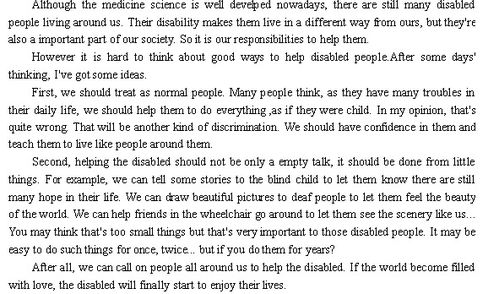Title: Understanding Psychological Disabilities
Psychological disabilities, also known as mental or psychiatric disabilities, refer to a range of conditions that affect an individual's mental health and functioning. These disabilities may impact a person's thoughts, feelings, behaviors, and relationships. It is crucial to raise awareness and understanding of psychological disabilities in order to promote inclusivity and support for individuals facing such challenges.
Types of Psychological Disabilities:
1.
Anxiety Disorders
: Conditions such as generalized anxiety disorder, panic disorder, social anxiety disorder, and specific phobias can severely affect a person's ability to cope with daily stressors.2.
Mood Disorders
: Including major depressive disorder, bipolar disorder, and dysthymia, mood disorders can lead to persistent feelings of sadness, hopelessness, or extreme mood swings.3.
Psychotic Disorders
: Conditions like schizophrenia result in a disconnect from reality, causing delusions, hallucinations, and disorganized thinking.4.
Eating Disorders
: Anorexia nervosa, bulimia nervosa, and bingeeating disorder are among the most common eating disorders that significantly impact one's relationship with food and body image.5.
PostTraumatic Stress Disorder (PTSD)
: Often occurring after experiencing a traumatic event, PTSD can lead to flashbacks, nightmares, and severe anxiety.6.
ObsessiveCompulsive Disorder (OCD)
: Individuals with OCD experience intrusive thoughts and engage in repetitive behaviors in an attempt to reduce anxiety or prevent perceived harm.The Impact of Psychological Disabilities:
Social Stigma
: Misconceptions and discrimination surrounding mental health conditions can lead to social isolation and feelings of shame for those affected.
Barriers to Education and Employment
: Individuals with psychological disabilities may face challenges in accessing education and securing employment due to a lack of understanding and support.
Impaired Relationships
: The symptoms of psychological disabilities can strain relationships with family, friends, and colleagues, leading to misunderstandings and conflicts.
Risk of CoOccurring Conditions
: Psychological disabilities are often accompanied by other health issues such as substance abuse, chronic pain, and physical health problems.Support and Strategies for Individuals with Psychological Disabilities:
1.
Therapy
: Psychotherapy, including cognitivebehavioral therapy (CBT) and dialectical behavior therapy (DBT), can help individuals better understand their thoughts and emotions while developing coping mechanisms.2.
Medication
: Psychiatric medications prescribed by healthcare professionals can assist in managing symptoms of psychological disabilities, although they are often used in conjunction with therapy.
3.
SelfCare Practices
: Encouraging selfcare activities such as exercise, mindfulness, adequate sleep, and healthy eating can contribute to overall wellbeing.4.
Social Support
: Building a strong support network of friends, family, support groups, or mental health professionals is essential for individuals dealing with psychological disabilities.5.
Advocacy and Education
: Promoting mental health awareness and advocacy can help reduce stigma and increase understanding of psychological disabilities in society.Conclusion:
In conclusion, psychological disabilities encompass a wide range of conditions that can significantly impact an individual's mental health and quality of life. By promoting awareness, understanding, and support for individuals with these disabilities, we can create a more inclusive and compassionate society. It is essential to emphasize the importance of seeking professional help, implementing coping strategies, and fostering a supportive environment for those facing psychological challenges.











